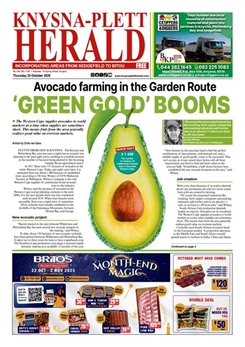Leading the launch, Minister of Tourism Marthinus van Schalkwyk, said that September (Tourism Month) was a very important month for tourism, hence the decision to launch the new standard for tourism at this moment. He said it was important to raise awareness of tourism amongst the people of South Africa, and convey to them that the industry was very important indeed, contributing over 8% of National Gross Domestic Product and providing many thousands of employment opportunities. He reported that to reinforce this message, all but two of South Africa's national parks would be offering free access to their parks this week.
"Responsible tourism is about creating better places for people to live in, and better places to visit. South Africa's natural environment is one of its greatest tourism resources, and therefore the tourism industry needs to be actively involved in conserving and protecting it," said Van Schalkwyk.
"The primary objective of the National Department of Tourism (NDT), is to retain the economic and social advantages of tourism development and growth, while reducing the undesirable impacts on the natural, historic, cultural and social environment."
It is planned that, through the application of responsible tourism practices, the tourism sector will develop as a national priority in a sustainable and acceptable manner, integrating tourism into the broader social and economic processes in society.
Minister Van Schalkwyk was accompanied by Dr Bonakele Mehlomakulu, the CEO of the South African Bureau of Standards, which had rigorously processed the draft of the National Minimum Standard for Responsible Tourism (NMSRT) in record time, enabling it to become a South African national standard. Dr Mehlomakulu said that South Africa was the first country in the world to include responsible tourism in its national priorities. In 2002 the first guideline was published, the draft was finalised in 2010, was processed by the SABS and was published on March 28 this year.
Dr Mehlomakulu was supported by Jennifer Seiff of Fair Trade in Tourism South Africa (FTTSA), who said it was hoped that South Africa would continue to advance the standard in the future so that it could become an international standard. The objective was to promote responsible tourism development with responsibility ensuring sustainable development, protecting the cultural heritage and incorporating environmental protection. There is an intention to include standards of service excellence within two years.
Seiff said that she had been the chairperson of the technical working group, and that the tourism industry had been involved in the development of the standards, as had been the national parks and regional tourism industries. A wide range of views had been canvassed in order to develop policy and planning guides.
Criteria
The NMSRT consists of 41 criteria covering the core aspects of sustainability in four categories, sustainable operations and management, economic sustainability, environmental protection, and social and cultural preservation.
The standard serves three purposes:
To establish understanding of the minimum criteria for responsible tourism;
To promote responsible tourism including accommodation, hospitality, travel distribution, as well as all state entities, organised labour, and communities involved in or interested in tourism;
The established minimum criteria for certification of the sustainability of organisation in tourism.
The NMSRT will be utilised by local tourism organisation or sector organisations to create awareness of responsible tourism and used as a benchmark for members to work towards attaining the goals set by the National Responsible Tourism Guideline of 2002. It can also be of use to those preparing for certification, or evaluating the organisations’ progress toward sustainability.
Minister Van Schalkwyk concluded by saying, "The launch marks an important milestone in the promotion of responsible tourism and the raising of awareness amongst tourists of the value of conserving our natural resources for sustainability, to ensure continued growth in the tourism industry for years to come."
.jpg)
The launch of the National Minimum Standard for Responsible Tourism was presented by opening addresses on board the Paddle Cruiser, while sailing from the Cruise Café to the Featherbed Bay, where Minister Van Schalkwyk addressed the participants.
ARTICLE BY STEVE ERIKSEN
















